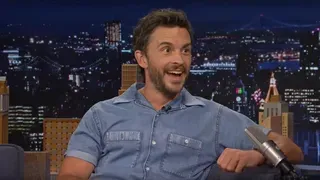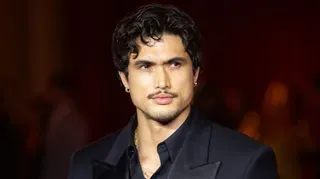October 30, 2013
'Ender's Game': Boycott? Or Boo-yah?
Daniel M. Kimmel READ TIME: 7 MIN.
Do you have an opinion on the upcoming film "Ender's Game?" Do you even know what it is? If it's not yet on your radar, rest assured you will know about it by its opening on Nov. 1, and you will have a definite opinion as to whether it should be boycotted, even if you otherwise would have had no interest in it.
Why we talking boycott? One reason: The views of its creator, Orson Scott Card, who has been spouting anti-gay rhetoric from the time that "Ender's Game" was published in 1985.
Card based his novel on a short story he had published eight years earlier, in which a young boy named Ender Wiggin is found to have a special gift for military strategy and tactics. Ender is placed in a special academy in space with other children playing war games. They are preparing for a coming war with an alien species derisively referred to as the "Buggers."
The story focuses on Ender's training and his own creativity, leading to a climactic confrontation. The book won both the Hugo Award (given by science fiction fans) and the Nebula Award (given by Card's peers in the Science Fiction Writers Association).
"Ender's Game" has remained a popular book with groups ranging from younger readers to the United States Marine Corps. A film adaptation has been in the works for years, and has gone through its own version of "development hell," but was finally made with Asa Butterfield staring as Ender.
The all-star cast includes Harrison Ford, Ben Kingsley, Viola Davis, and Abigail Breslin. The film is written and directed by Gavin Hood ("Tsotsi," "Rendition"). Card is one of more than a dozen people with a "producer" credit on the film, which means that he has a vested interest in its financial success.
While writers often make nothing beyond their initial contractual fee for movie adaptations, as a producer Card would stand to benefit from a commercially successful run -- not to mention to prospect of the novel's sequels also making the leap to the screen.
Okay, you may or may not be interested in this science fiction film, but you may be interested in Card's views on marriage equality. He's not merely against it. Here's Card, in a July 2008 essay in the Mormon Times:
"The first and greatest threat from court decisions in California and Massachusetts, giving legal recognition to 'gay marriage,' is that it marks the end of democracy in America. These judges are making new law without any democratic process; in fact, their decisions are striking down laws enacted by majority vote."
In the same essay, he imagines a future citizen so outraged at this turn of events, that there is only one way to resolve it:
"What these dictator-judges do not seem to understand is that their authority extends only as far as people choose to obey them. How long before married people answer the dictators thus: Regardless of law, marriage has only one definition, and any government that attempts to change it is my mortal enemy. I will act to destroy that government and bring it down, so it can be replaced with a government that will respect and support marriage, and help me raise my children in a society where they will expect to marry in their turn."
Card has made other statements about having gay friends and being tolerant of other viewpoints, but -- until recently -- he was also on the board of the National Organization for Marriage. Thus in July, when Lionsgate Entertainment was planning a big publicity push for the "Ender's Game" movie at the San Diego Comic-Con, they were greeted by an online call for a boycott of the film started by a group called Geeks Out, who argue that people who oppose Card's views on gay marriage should deny him profits from a successful film that might be the launch of a new franchise. (The film, by the way, doesn't address issues of marriage, straight or gay.)
Lionsgate responded by pointing out that the company has a strong pro-LGBT record both for its employees and in the films it releases, such as "Gods and Monsters" and "The Perks of Being a Wallflower." Indeed, they announced they would hold a benefit premiere of "Ender's Game" for an LGBT cause.
With those who have spoken out for the film distancing themselves from Card's views, Card issued a statement appearing in Entertainment Weekly in which he grudgingly admitted defeat: "With the recent Supreme Court ruling, the gay marriage issue becomes moot... Now it will be interesting to see whether the victorious proponents of gay marriage will show tolerance toward those who disagreed with them when the issue was still in dispute."
So now -- assuming you have any interest in the film -- you have to decide whether to observe the boycott or not.
One reason not to is the fact a boycott would not only affect Card, but everyone involved in the film -- none of whom have been publicly connected to Card's views. Do they deserve to suffer as a result of the statements of the author of the source material, especially given that those personal views are totally unconnected to the work in question?
Before you answer, here are some analogous points to ponder. Did you refuse to see "Cats" because it was based on the writings of poet T. S. Eliot, who was anti-Semitic? Do you avoid the TV show "Glee" because it appears on FOX, a company operated by Rupert Murdoch who also operates FOX News, where reporter/host Shannon Bream regularly provides a platform for anti-gay views? Do you ordinarily vet your entertainment not only for its own content, but the political and personal views of anyone associated with it?
Geeks Out has admitted this is about keeping money out of Card's pocket, and has nothing to do with the content of the film. At their website skipendersgame.com they state: "Our issue is not with the book itself or the content of the movie. Skip 'Ender's Game' is about preventing our community from inadvertently funding one of its biggest enemies. It's about what we do with our money."
Is the goal to win the fight for marriage equality, or is it to so punish Card as to render him unemployable in the moviemaking business? How is the cause of LGBT equality advanced by boycotting the film? Perhaps the last word should go to someone with something at stake within the film industry.
When the story of the proposed boycott broke this summer, Dustin Lance Black -- the Oscar-winning writer of "Milk" and himself an LGBT activist -- posted the following on his Facebook page: "Boycotting a movie made by 99% lgbt equality folks in an lgbt equality industry is a waste of our collective energy. Making one phone call to a relative in the south who isn't quite there yet would be 1000 times more effective."







